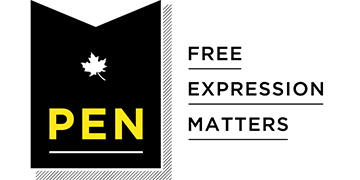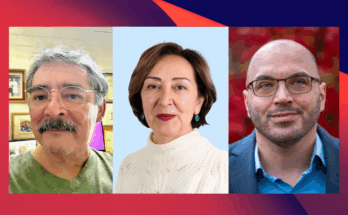In the fall of 2019, PEN Canada collaborated with Ryerson’s Community Engaged Learning & Teaching (CELT) initiative and Literatures of Modernity graduate program in the Faculty of Arts to bring members of our Writers-in-Exile network into the classroom. Students interviewed the writers about their work and asked how their cultural and religious backgrounds had affected their freedom of expression. The students who interviewed Önder Deligöz shared the following reflections on the experience.
Önder Deligöz, exiled Turkish author and journalist, decided early on during his high school years that he wanted to become a journalist. It was this career choice that would one day force him to flee his native Turkey, fearing for the very freedom he believed journalism would afford him. Deligöz, who currently resides in Canada, explains, “I always saw journalism as a space for freedom and a way of life.” He wanted to avoid a profession that would confine him to a monotonous routine, regular working hours, and a set office space. He believed that pursuing a career in journalism would instead allow him to meet new people, travel to different places, and provide an opportunity to witness and write about interesting events. After successfully graduating from Istanbul University with a degree in Journalism, Önder went on to work for several newspapers and television stations in Turkey as a correspondent, editor, and executive producer. He explains, “In the newspaper and television companies I worked at, I prepared several newsletters and documentaries on the uprising political pressures that are causing social disorder.” It was during this time in his life that life for journalists in Turkey became precarious.
As a broadcast executive at one of the biggest news channels in Turkey, Deligöz was under extreme pressure to maintain his journalistic integrity while many others were persecuted for doing the same. On this, he says, “my coworkers and I continued our struggles so that Turkey wouldn’t lose whatever was remaining of its democracy.” In the time leading up to his escape, Turkey’s freedom of the press had been virtually eradicated under the censorship efforts of the Erdoğan government. From funding cuts to million-dollar fines and imprisonment, the government had done everything in its power to eliminate all and any anti-government sentiments. In a purge that began with the dismissal of 2,745 judges and prosecutors, the Erdoğan government fired tens of thousands of its public service workers and targeted the remaining few who they could not justifiably dismiss. As this was made possible by the state of emergency Erdoğan ’s government declared, all media channels opposing the government were shut down with a statutory decree. Opposing journalists were persecuted and picked up in groups while lists of the outstanding few were published and widely circulated. Due to Deligöz’s esteemed position at his—now shut down—newspaper, he packed up and escaped Turkey as he knew it was only a matter of time before he, too, would also be targeted. Not knowing whether his passport had been cancelled or not, Deligöz was forced to flee the country without making any final amends. A month after arriving in the United States, Deligöz learned that an arrest warrant had been put out for him and his hometown of Istanbul was now under siege.
Deligöz then moved from journalism to fiction to allow his writing to touch areas that he does not believe non-fiction is capable of. He argues that “there is no place for emotions in journalism”, and so in novel writing, he is able to not only create a record of events but contextualize what he knows of the world with what he feels of the world. Deligöz believes that imaginary stories and real stories, while coming from the same place of inspiration, serve differing but equally important roles in reaching readers. His first novel, Love After You Have Gone, tells the story of “the son of an ordinary family oppressed in a secular-religious struggle,” as well as a young woman whose family emigrated to escape anti-terror units. The recipient of the 2018 PEN Canada-Humber College Writers-in-Exile Scholarship, Deligöz was given the opportunity to work with fellow author Boris Fishman, whose advice and mentorship Deligöz feels was akin to a kind of literary doctor able to diagnose his patient’s creative ails. Deligöz is now hard at work on his next novel, of which he is in the final stages of revision. This next book will bring together Deligöz’s characters beginning at Sanilufra, Turkey’s Syrian border, and will tell a story of rebellion against religious and societal pressures by Hifza, who escapes ISIS after a violent struggle, and Yusuf, who works under a pickle seller who supports ISIS. He is also writing a play, focused on Caligula’s horse. He wants his writing to expand outwards, taking his words from a local point of view to stories that can appeal and touch readers around the world.
— Ben Berman Ghan, Ana Reynoso De La Garza, Jing Wang



